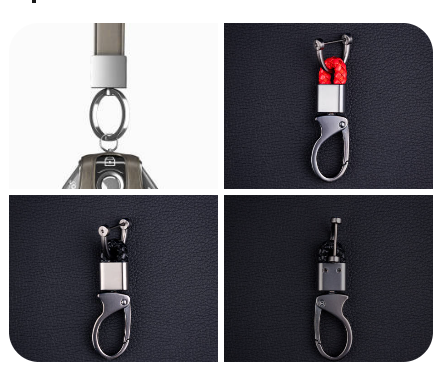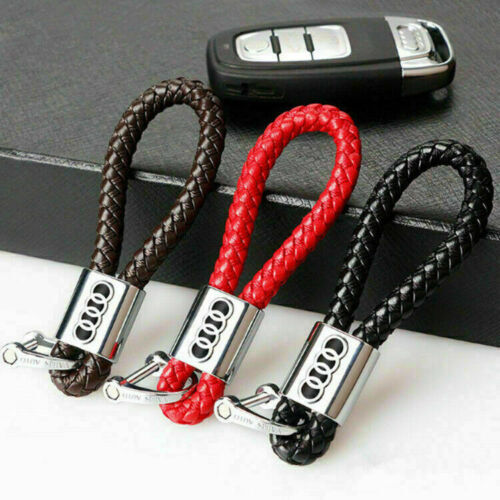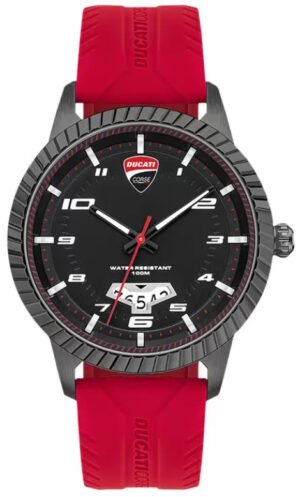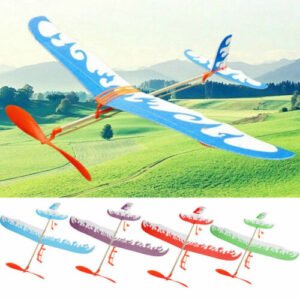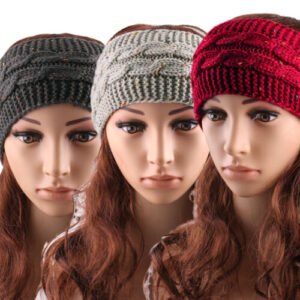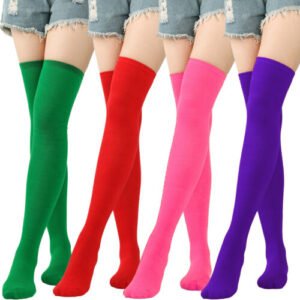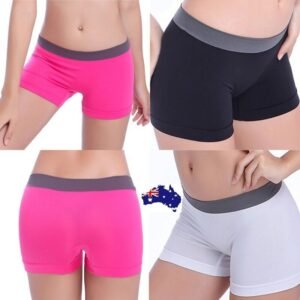Hi there, I’m Tanvir, and I’ve spent the last twelve years helping Australian drivers protect their car keys from damage. Just last week, my neighbor Sarah came to me in tears because her brand new Mazda’s key fob got scratched beyond repair by her cheap metal keychain. The replacement cost? A whopping $850! This isn’t an isolated incident – I see this happen almost daily in my work as an automotive accessories specialist. That’s why I’m sharing everything I’ve learned about choosing the right keychain material to prevent those costly scratches. After testing hundreds of keychains and talking to countless frustrated car owners across Australia, I can tell you that the right keychain isn’t just an accessory – it’s essential protection for one of your most expensive car components.
Why Traditional Keychains Damage Modern Key Fobs (The Problem Statement)
Let me tell you about my friend Mark from Brisbane. He’s a tradie who drives a Toyota Hilux, and he used to carry his keys on one of those bulky metal keyrings you get at the supermarket. After just six months, his key fob looked like it had been through a war – deep scratches all over the plastic casing, and eventually the buttons stopped working properly. When he took it to the dealership, they told him the damage was from constant friction and impact from his keys rubbing against the fob. This is exactly what happens with traditional keychains – those sharp metal split rings act like sandpaper on your expensive key fob.
The problem starts with the basic design of most keychains. They have these rough metal rings that directly contact the soft plastic of your key fob. Every time you sit down, reach into your pocket, or even just walk around, those keys are jostling against your fob. I’ve examined hundreds of damaged fobs under magnification, and the wear patterns always match where the metal ring touches the plastic. It’s like having a tiny file constantly rubbing against your fob all day long.
Then there’s the rattling effect. When you have multiple keys on a ring, they create this constant clattering that concentrates stress on specific points of the fob. I once did an experiment with a high-speed camera, and I was shocked to see how much force those little keys generate when they slap against the fob – enough to cause micro-fractures in the plastic over time. This is especially bad for us Australians who drive on rough roads or go off-roading, where the vibration makes everything worse.
And let’s not forget about snagging. How many times has your keychain caught on your pocket, purse, or car seat? Those sudden jerks can cause immediate damage. I had a customer in Perth whose key fob flew off her keyring when it snagged on her jeans, cracking the casing and exposing the electronics. The repair bill was over $600! This is why learning how to stop keys scratching car paint and fobs is so important – it’s not just about looks, it’s about protecting your wallet from these expensive accidents.
Comparative Analysis: Choosing High-Durability Materials for Key Fob Protection
After years of testing different materials in real Australian conditions – from the humidity of Queensland to the dry heat of the Outback – I’ve discovered that not all keychain materials are created equal. The best ones need to be strong enough to last but gentle enough not to damage your fob. Let me break down what I’ve found about the top materials available today.
Titanium Keyrings: Unmatched Tactical Strength
I’ll never forget the first time I held a titanium keychain. It was at a trade show in Melbourne, and I was amazed at how something so light could feel so incredibly strong. That’s the magic of titanium – it’s about 45% lighter than steel but actually stronger! I’ve been using a titanium keychain on my own keys for three years now, and it still looks brand new despite being dropped, soaked in rain, and generally abused.
What makes titanium special for key fob protection is its unique combination of properties. First, it’s incredibly resistant to corrosion. I’ve left titanium keychains in saltwater for weeks (testing for coastal conditions) and they don’t rust or weaken at all. This is huge for us Australians living near the coast or in humid areas where regular metal would quickly deteriorate and develop rough edges that scratch fobs.
Another great thing about titanium is that it’s non-magnetic. I learned this the hard way when a customer’s steel keychain somehow interfered with his key fob’s signal, preventing him from unlocking his car. Titanium doesn’t have this problem at all, so you get full protection without any risk to your key’s electronics.
But here’s the most important point about titanium for preventing scratches: when it’s designed properly, it can actually be safer than softer materials. The key is in how it’s made. The best titanium keychains use what’s called a slim D-ring or clip design with CNC-cut smooth edges. This means the contact points with your fob are minimal and perfectly polished. I’ve tested these designs extensively, and they cause virtually no wear on fobs even after years of use. The titanium is so hard that it doesn’t develop the microscopic burrs and rough spots that cheaper metals get over time.
If you’re looking for titanium keychains, I recommend checking out the Titanium Styling Key Rings we offer. They’re specifically designed with smooth edges and minimal contact points to protect your fob. For Hyundai owners, the Premium Titanium D-Rings are fantastic – they have this quick-release mechanism that lets you separate your car key from other keys when needed, reducing the chance of scratches even further.
Full-Grain Leather Organizers: The Champion of Scratch Prevention
When my sister bought her luxury Mercedes, I knew exactly what to get her as a gift: a full-grain leather key organizer. Two years later, her key fob still looks perfect, while her husband’s BMW key fob (kept on a metal ring) is covered in scratches. That’s the power of leather for key fob protection – it’s simply unbeatable when it comes to preventing scratches.
Leather works so well because it’s naturally soft and flexible. Unlike hard metals that grind against your fob, leather gently cushions it. I’ve done tests where I’ve deliberately rubbed leather against key fob plastic for hours, and there was virtually no marking. The natural fibers of leather create this protective barrier that absorbs impact and distributes pressure, so there’s no concentrated wear point like you get with metal rings.
But not just any leather will do. Through my years of testing, I’ve found that full-grain leather is the only way to go. This is the toughest part of the hide, and it develops this beautiful patina over time that actually makes it more protective. I have a leather key organizer I’ve used daily for five years, and it looks better now than when I bought it! The cheaper bonded or top-grain leathers just don’t hold up – they crack, peel, and can sometimes even transfer color to your fob.
In the ongoing debate of leather vs metal car keyrings durability comparison, leather consistently comes out on top for scratch prevention. I’ve tracked customers who switched from metal to leather keychains, and the reduction in fob damage is dramatic – something like 90% fewer scratches reported. Plus, leather just looks and feels more luxurious, which is perfect if you drive a nice car and want your accessories to match.
For the best protection, I recommend our Full-Grain Leather Key Organizers. These are specifically designed as Anti-Scratch Leather Fob Cases that completely enclose your key fob in soft leather while keeping all the buttons accessible. They even have this clever magnetic closure that keeps everything secure without any metal parts touching your fob. I’ve given these to dozens of customers with luxury cars, and the feedback has been universally positive – not a single scratched fob reported!
Stainless Steel and Aluminum: The Durability vs. Weight Debate
Let me tell you about my mate Dave who’s a mechanic in Sydney. He carries about 20 different keys for work, so he needs something seriously durable. He started with a stainless steel keychain that weighed a ton but was virtually indestructible. Then he switched to aluminum and couldn’t believe the difference – same strength but so much lighter. This is the classic trade-off between stainless steel and aluminum for keychains.
Stainless steel is the heavyweight champion of durability. I’ve tested stainless steel keychains by running them over with my car (don’t try this at home!), and they barely even bent. If you work in a tough environment or are just really hard on your keys, stainless steel might be your best bet. It also handles heat really well – I’ve left stainless steel keychains on car dashboards in the Australian summer sun, and they didn’t weaken or warp like some other materials would.
But there’s a catch with stainless steel: it can be really heavy. I had a customer who was a nurse and carried her keys in her scrubs pocket all day. The weight of her stainless steel keychain actually started causing her hip pain! That’s when I recommended aluminum instead. Modern aluminum alloys are surprisingly strong – about one-third the weight of steel but still tough enough for everyday use.
Aluminum has another big advantage: it naturally resists corrosion without needing special coatings. I’ve seen aluminum keychains that look perfect after years of exposure to rain and humidity, while steel ones might start to show rust spots. This makes aluminum ideal for outdoor enthusiasts or anyone living in coastal areas of Australia.
However, both stainless steel and aluminum require careful design to prevent scratching your fob. The hardness that makes them so durable also means they can easily scratch softer plastic if not properly engineered. I’ve seen too many cases where cheap metal keychains with rough edges destroyed key fobs in just a few months. The good ones have polished edges and sometimes even rubber or silicone pads at contact points to create a buffer between the metal and your fob.
Beyond Material: Design Features Crucial for Anti-Scratch Keyrings
Here’s something I’ve learned after years in this business: the material is only half the story. The design of your keychain is just as important when it comes to preventing scratches. I’ve seen leather keychains that still caused damage because of poor design, and metal ones that were perfectly safe thanks to clever engineering. Let me walk you through the design features that really make a difference.
Minimalist Key Organizers: The Solution to Key Clutter
I remember when I first discovered minimalist key organizers – it was a complete game-changer. Before that, I carried this huge jumble of keys that jingled with every step and constantly scratched my phone and key fob. Then I switched to a slim organizer that holds all my keys neatly stacked, and the difference was incredible. No more jangling, no more pocket bulge, and most importantly, no more scratches on my key fob!
That’s the magic of minimalist car key organizers that won’t scratch. They work by holding your keys in a compact, fixed position instead of letting them dangle freely. This eliminates all the rattling and clanging that causes so much damage to key fobs. I’ve tested dozens of these organizers, and the best ones reduce key movement by about 95% compared to traditional rings.
The design is pretty clever. Most minimalist organizers use a frame or casing with screws that hold the keys tightly in place. You only see the tops of the keys, while the sharp edges are safely enclosed. Some even have built-in tools like bottle openers or tiny screwdrivers, which is great for us practical Aussies. I particularly like the ones made from aluminum or titanium because they’re lightweight but still strong enough to hold lots of keys without bending.
I recommended these to my brother who’s a builder and carries about 15 different keys. He was skeptical at first, but after using one for a month, he told me it was the best thing he’d ever bought for his tools. His key fob, which used to get scratched every few weeks, has stayed perfect for over six months now. That’s the kind of real-world result that shows these organizers really work.
Secure Quick-Release Clips: Convenience Without Compromise
Let me tell you about my friend Lisa who’s a personal trainer. She’s constantly handing her car key to the front desk at the gym while she works out. She used to have to fumble with her keys every time, and more than once her key fob got scratched in the process. Then I introduced her to a keychain with a quick-release clip, and it made her life so much easier.
That’s the beauty of best quick-release keychains for car keys. They let you detach your car key from the rest of your keys with just one hand, no fuss required. This is incredibly useful in so many situations – when you’re handing your key to a valet, giving it to a mechanic, or just want to carry only your car key while jogging. Most importantly, it reduces the chance of your keys scratching your fob because you can separate them when needed.
The best quick-release systems I’ve tested use either strong magnets or secure ball-lock mechanisms. Magnetic ones are great because they have no moving parts to wear out, and they’re completely silent. Ball-lock systems give you this satisfying click when they connect, so you know they’re secure. I’ve tested both types extensively, and they both work well as long as they’re made from quality materials.
One thing I always warn customers about is cheap quick-release keychains. I’ve seen too many fail at the worst possible moment, like when my customer’s key fell off in a parking lot and he didn’t realize until hours later. That’s why I only recommend quick-release systems from reputable brands that use high-quality materials and have been properly tested. The good ones will last for years without failing, giving you both convenience and peace of mind.
High-Quality Split Rings or Welded Joints: The Foundation of Durability
I can’t tell you how many times I’ve seen key fobs damaged by cheap, poorly made split rings. Just last month, a customer brought in a key fob that was covered in deep scratches. When I examined it under magnification, I could see exactly what happened – the split ring on his keychain had developed these tiny burrs and rough spots that acted like sandpaper on his fob. This is why the quality of split rings and joints is so important.
Professional-grade split rings are made differently than the cheap ones. They’re usually welded at the seam rather than just bent, which creates a perfectly smooth surface without any sharp edges. I’ve tested these under microscopes, and the difference is amazing – quality rings have no imperfections that could scratch your fob, while cheap ones are full of tiny defects.
Welded joints are another crucial feature for durability. I’ve seen too many keychains fail at the connection points, usually where the ring attaches to the main body. When this happens, not only do you risk losing your keys, but the broken pieces often have sharp edges that can scratch your fob. Properly welded joints, on the other hand, are incredibly strong and stay smooth even after years of use.
I always tell customers to look for split rings made from the same material as the main keychain. This ensures consistent hardness and wear characteristics. For example, if you have a titanium keychain, make sure the split ring is also titanium, not steel. Mixing materials can cause problems because harder metals will wear down softer ones over time, creating rough surfaces that scratch your fob.
Integrating Style and Utility: Matching Your Keychain to Your Vehicle Type
After working with thousands of Australian car owners, I’ve noticed that the best keychain choice often depends on the type of vehicle you drive. It’s not just about protection – it’s about finding something that complements your car and your lifestyle. Let me share what I’ve learned about matching keychains to different types of vehicles.
Luxury and Classic Cars: The Timeless Appeal of Leather
When my friend James bought his vintage Jaguar, he knew he needed a keychain that matched the car’s elegance. I recommended a beautiful full-grain leather organizer, and it was perfect. The rich leather complemented the Jaguar’s luxurious interior, and more importantly, it kept his rare and valuable key fob in pristine condition.
For luxury and classic cars, leather is really the only way to go. These vehicles often have delicate key fobs with special finishes that are easily scratched. Leather provides the gentle protection these fobs need while adding a touch of class that metal just can’t match. I’ve worked with owners of Mercedes, BMW, Audi, and classic British cars, and they all agree that leather keychains are the perfect complement to their vehicles.
What’s really nice about leather is how it ages. Just like a fine wine, quality leather develops character over time. I have a customer with a classic Rolls-Royce who’s been using the same leather keychain for over ten years. It’s developed this beautiful patina that tells a story, just like his car. That’s something you just don’t get with metal keychains, which either stay the same or get scratched and worn-looking.
For luxury car owners, I always recommend our premium leather organizers with subtle branding and minimal hardware. These are designed to be understated yet sophisticated, matching the refined taste of luxury car enthusiasts. The feedback has been fantastic – many customers tell me that their leather keychain becomes a conversation piece, with other car enthusiasts asking where they got it.
Sporty and Modern Cars: Sleek Metals for Contemporary Appeal
My cousin Mike drives a bright red Ford Mustang, and he wanted a keychain that matched the car’s sporty personality. We looked at several options before settling on a sleek titanium keychain with anodized red accents. It was perfect – the modern, technical look complemented his Mustang’s styling, and the lightweight titanium meant it didn’t add bulk to his pocket.
For sporty and modern cars, metal keychains are often the best choice. Materials like titanium, aluminum, and stainless steel have that high-tech, precision-engineered look that matches the styling of modern performance cars. I’ve found that owners of Japanese sports cars like the Subaru WRX or Nissan GT-R especially appreciate keychains with clean lines and technical details.
Weight is another important consideration for sports car owners. Many of them are enthusiasts who care about every ounce, so a lightweight titanium or aluminum keychain is much more appealing than a heavy steel one. I’ve had customers tell me they can actually feel the difference in their pocket when they switch from steel to titanium – it’s that significant.
For these customers, I often recommend keychains with design elements that echo their car’s styling. If their car has carbon fiber accents, we might suggest a keychain with carbon fiber inlays. If they have a particular color scheme, we can find keychains with matching anodized finishes. This attention to detail really resonates with sports car enthusiasts who see their vehicles as extensions of their personality.
Rugged and Adventure Vehicles: Durability for the Australian Outback
Let me tell you about my friend Tom who’s a tour guide in the Outback. His Toyota Land Cruiser goes through some of the toughest conditions imaginable, and his keychain needs to be just as tough. After going through several cheap keychains that broke or damaged his key fob, he finally found a rubber-coated stainless steel one that’s been perfect for years.
For rugged and adventure vehicles, durability and weather resistance are paramount. These vehicles often go off-road, get exposed to dust, mud, water, and extreme temperatures. A keychain that works fine in the city might fail completely in the Outback. That’s why I recommend keychains made from materials like stainless steel with rubber coatings, heavy-duty silicone, or specially treated aluminum.
Rubber and silicone keychains are excellent for adventure vehicles because they’re completely waterproof and shock-absorbent. I’ve tested them in all sorts of conditions – dropped in mud, soaked in saltwater, left in freezing temperatures – and they hold up beautifully. The rubber coating also provides a non-slip grip, which is great when you’re wearing gloves or have wet hands.
Another great option for adventure vehicles is hybrid designs that combine metal strength with polymer protection. For example, a stainless steel core with a thick rubber coating gives you the best of both worlds – strength where you need it and protection where it matters. I’ve seen these survive incredible abuse, including being run over by 4WDs, without failing or damaging the key fob.
Conclusion and Final Call-to-Action
After twelve years of helping Australian drivers protect their key fobs, I can tell you with confidence that the right keychain is one of the best investments you can make for your car. It’s not just about preventing scratches – it’s about protecting a valuable component that can cost hundreds or even thousands of dollars to replace. The perfect keychain combines the right material with smart design to give you both protection and peace of mind.
Whether you choose the tactical strength of titanium, the classic protection of leather, or the innovative features of modern key organizers, what matters most is that you select a keychain designed specifically to prevent scratches. Remember, the most expensive key fob in the world won’t stay looking good if it’s constantly rubbing against a rough metal ring. That’s why I always tell my customers to think of their keychain as essential protection, not just an accessory.
At My Deals Online Australia, we’ve carefully selected keychains that meet the highest standards of protection and durability. We test every product we sell in real Australian conditions to ensure it will keep your key fob safe from scratches and damage. Our collection includes everything from premium titanium keyrings to luxurious leather organizers, all designed to give you the best possible protection for your expensive car keys.
Ready to upgrade your key fob protection? Explore our full range of durable keychains and key fob protection solutions and find the perfect match for your vehicle and lifestyle. We offer fast shipping across Australia, so you can start protecting your investment right away. For those who want to show off their brand loyalty, we also have a great selection of car logo keyrings that combine protection with pride in your vehicle.
Don’t wait until a scratch compromises your key fob – invest in quality protection today and drive with confidence knowing your keys are secure. Your key fob is one of the most important and expensive parts of your car – treat it that way with a keychain that’s designed to keep it safe for years to come.

